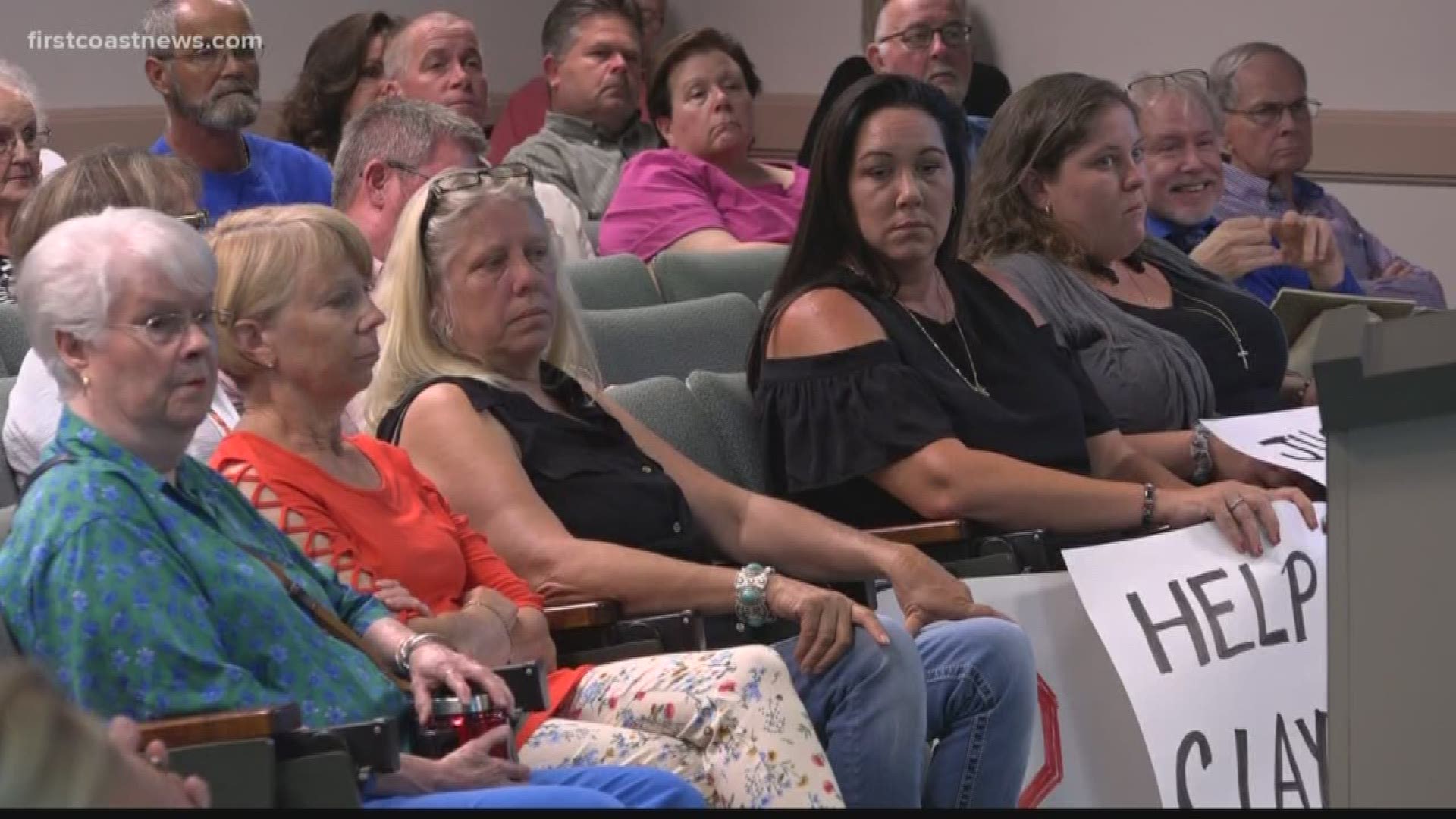CLAY COUNTY, Fla. - Clay County residents are worried about the potential dangers of developing a residential neighborhood on top of a former hazardous waste site.
The controversy centers around the county rezoning a nearly 800-acre site owned by Stoneridge
Farms, formerly known as Solite.
Up until the mid-90’s, the company used the site to make a clay aggregate. According to documents obtained by First Coast News, hazardous waste was burned on the site, metal drums containing residues were buried on the site and sediments were released into an open pond. In a 2010 report, sent to the Florida Department of Environmental Protection, multiple sites were identified as problems.
The site will need to be rezoned before it can be developed, a decision made by the county commission.
Kristen Burke and Randy Gillis are neighbors in this rural Clay County neighborhood and live a few doors down from the proposed new low-density housing development. They have questions about what lies beneath.
“I feel like the possibility of harming us and more importantly our children and their future is very real," Gillis said. “I feel like there will be due process, but due process seems to be slanted in very much favor of the developer.”
“We have lost sleep in our house. We feel like we are backed into a corner and the county is not
behind us," Burke said. "... My 10-year-old is wondering if she can still swim in the lake behind our house that was dug out by Solite years ago. That hurts."
“We are certain that no additional testing has been done to the property," Gillis said.
In a statement to First Coast News, the Florida Department of Environmental Protection (DEP) writes: "The Department is committed to assuring the assessment and cleanup of Stonebridge Farms property are conducted in accordance with Florida’s environmental laws."
Stoneridge Farms has signed a Consent Order with DEP that requires them to clean up the property. Financial Assurance is required by the Consent Order and is provided once an approved Corrective Action Plan is in place. The Corrective Action Plan has not yet been finalized.
A Corrective Action Plan is typically finalized once the assessment of contamination across the entire facility is considered complete. This allows the responsible party to prioritize the most important areas for cleanup and develop the most effective and efficient cleanup. DEP reviews this plan to ensure it meets all requirement of the state’s cleanup rules and regulations. The assessment of the site is nearly complete.
DEP is aware that a prospective buyer would like to purchase the property for development. Pursuant to the requirements of the DEP Consent Order, as amended in 2006, Stoneridge Farms plans to take $2,000,000 from the sale to demonstrate their commitment to the cleanup of the property and maintain financial assurance to cover the costs of completing the required cleanup work. The actual amount of financial assurance necessary would be adjusted as needed based on the actual final cost estimates to implement the cleanup plan, once the plan is finalized and approved by DEP.
If the sale is finalized, it is likely a new Consent Order will have to be executed to address the change in ownership and the finalized Corrective Action Plan.
Still, Burke and Gillis want more testing.
“I want that site assessed before any activity is begun related to development," Gillis said.

